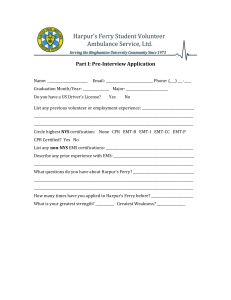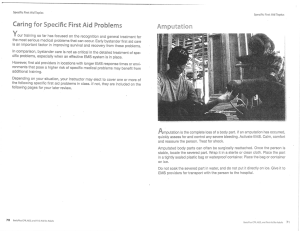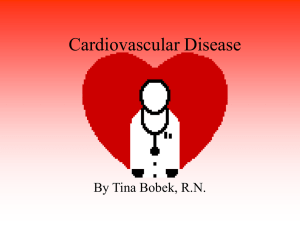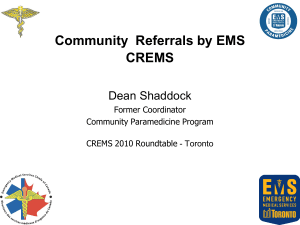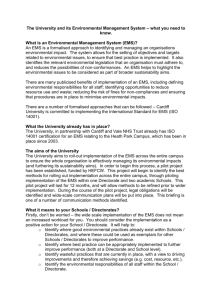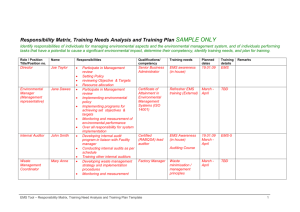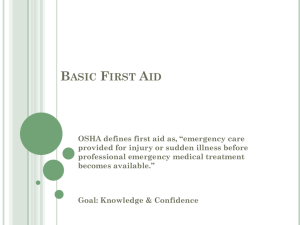serious sports injuries
advertisement
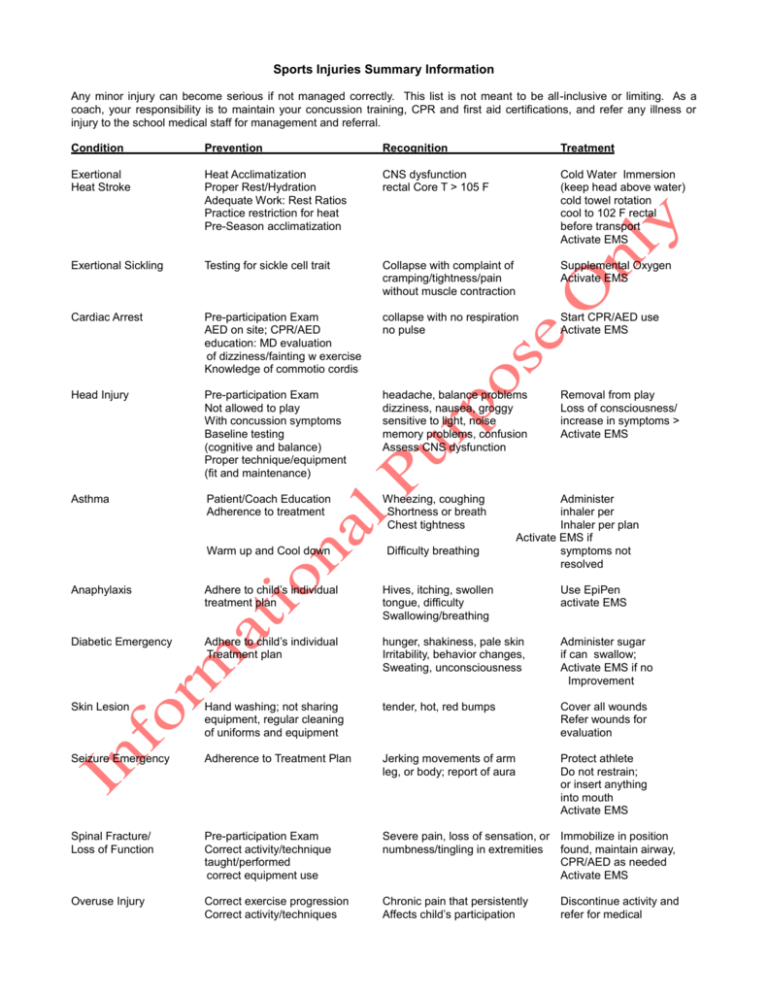
Sports Injuries Summary Information Any minor injury can become serious if not managed correctly. This list is not meant to be all-inclusive or limiting. As a coach, your responsibility is to maintain your concussion training, CPR and first aid certifications, and refer any illness or injury to the school medical staff for management and referral. Condition Prevention Recognition Treatment Exertional Heat Stroke Heat Acclimatization Proper Rest/Hydration Adequate Work: Rest Ratios Practice restriction for heat Pre-Season acclimatization CNS dysfunction rectal Core T > 105 F Cold Water Immersion (keep head above water) cold towel rotation cool to 102 F rectal before transport Activate EMS Exertional Sickling Testing for sickle cell trait Collapse with complaint of cramping/tightness/pain without muscle contraction Supplemental Oxygen Activate EMS Cardiac Arrest Pre-participation Exam AED on site; CPR/AED education: MD evaluation of dizziness/fainting w exercise Knowledge of commotio cordis collapse with no respiration no pulse Start CPR/AED use Activate EMS Head Injury Pre-participation Exam Not allowed to play With concussion symptoms Baseline testing (cognitive and balance) Proper technique/equipment (fit and maintenance) headache, balance problems dizziness, nausea, groggy sensitive to light, noise memory problems, confusion Assess CNS dysfunction Removal from play Loss of consciousness/ increase in symptoms > Activate EMS Asthma Patient/Coach Education Adherence to treatment Wheezing, coughing Shortness or breath Chest tightness Warm up and Cool down Difficulty breathing Administer inhaler per Inhaler per plan Activate EMS if symptoms not resolved Anaphylaxis Adhere to child’s individual treatment plan Hives, itching, swollen tongue, difficulty Swallowing/breathing Use EpiPen activate EMS Diabetic Emergency Adhere to child’s individual Treatment plan hunger, shakiness, pale skin Irritability, behavior changes, Sweating, unconsciousness Administer sugar if can swallow; Activate EMS if no Improvement Skin Lesion Hand washing; not sharing equipment, regular cleaning of uniforms and equipment tender, hot, red bumps Cover all wounds Refer wounds for evaluation Seizure Emergency Adherence to Treatment Plan Jerking movements of arm leg, or body; report of aura Protect athlete Do not restrain; or insert anything into mouth Activate EMS Spinal Fracture/ Loss of Function Pre-participation Exam Correct activity/technique taught/performed correct equipment use Severe pain, loss of sensation, or Immobilize in position numbness/tingling in extremities found, maintain airway, CPR/AED as needed Activate EMS Overuse Injury Correct exercise progression Correct activity/techniques Chronic pain that persistently Affects child’s participation Discontinue activity and refer for medical Taught/performed In practice/competition for More than 2 weeks evaluation Source: http://www.amaasportsmed.org/Assets/American+Medical+Athletic+Assoc+Digital+Assets/Boston+2011+Meeting+Materials/ Presentation+Handouts/Casa_Exertional+Heat+Stroke+Article.pdf

